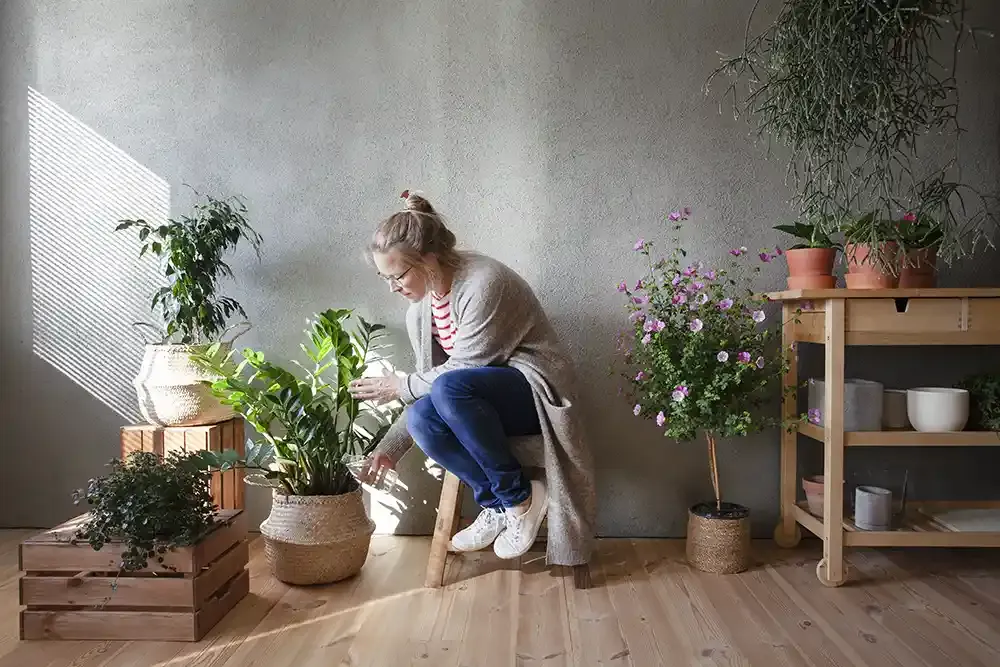Close
Hyundai Motorstudio Senayan Park
Hyundai Motorstudio Senayan Park
Newsroom
-
7 Ways to Improve Clean Air at Home | Natural and Easy
- Hyundai Motorstudio Senayan Park 2022.05.10
-
The pandemic has made us need more time at home, so you need to clean air at home. For the sake of health, we also regularly clean and sterilize the house, especially the parts that are often touched. Spending a long time at home should live in a comfortable atmosphere and good air quality.For better air at home, you can try the following:
1. Open the window, let the air out and into the room
Of course the quickest, easiest and cheapest way to get more oxygen flowing into our spaces and inviting a fresher scent is to open a few times a day. For fresh air, always open the doors and windows in the morning.Opening a window is a surefire solution, and it definitely works. Open your windows and clean air at home advises doctor Appelles Econs, an allergy specialist at the Burghwood Clinic, quoted by The Guardian.Closing windows all day, according to him, will actually cause chemicals and allergens to build up. Even if people live in a polluted city, they still have to open their windows regularly.You don't want to be stuck in an unventilated house all day. If you live near a busy street, you might not want to keep your windows open all the time, but you still need ventilation, advised doctor Paul Young of Lancaster University. That's why he suggests opening windows at night or when traffic is light.2. Essential Oils
Everyone loves a home that smells fresh and clean, right? There are certain scents that can be trusted to evoke and eliminate unpleasant odors from food, moisture, or other things that may be stuck in the room.Clean, fresh scents like lemon, orange, rosemary, and peppermint can help deodorize and freshen up your home.Essential oils with antibacterial properties such as tea tree oil help improve air quality in the home by reducing airborne bacteria.You can also use essential oils like eucalyptus, clove and rosemary if you have allergies, have asthma or have children. This scent is believed to be good for sensitive lungs or sinuses.3. Candle Scent
Burning a sweet-smelling candle may be a way to pamper, relax, and unwind. However, linking synthetics full of artificial fragrances at home for some people can be a headache and also cause air contamination in the long run.Therefore, choose candles made from natural materials such as beeswax or eliminate the possibility of a fiery accident by using LED light candles which are currently available in all shapes and colors and then clean air at home.For a more eco-friendly approach, you can even use solar-powered ones on your windowsill or on your balcony.4. Indoor plants
While there is conflicting evidence about how to remove volatile organic compounds from the air, some studies suggest plants can improve indoor air quality.
For example, the snake plant, or mother-in-law's tongue, is known to reduce formaldehyde, toluene and clean air at home while chrysanthemum can help filter out toxins from plastics and detergents, including ammonia and benzene.The air-cleaning ability of plants is limited, placing greenery indoors will add fresh color and character to any home decor.5. Diligently clean if you have pets
Most pets, naturally, leave dead skin almost anywhere in the house. For that, make sure the cleanliness of the house is considered.Regularly vacuuming pet hair stuck to sofas, carpets and mattresses is the first step. Don't forget to bathe regularly or because of pet fur to treat allergy symptoms.For best results, use a vacuum cleaner with a HEPA filter to trap fine particles and ensure better hygiene.6. Using an air purifier
You may find it difficult to focus after hours indoors. This could be due to the accumulation of harmful particles in the air.Electronic air purifiers work to remove harmful gasses and substances such as formaldehyde from the air, as well as remove unwanted odors.
The use of air purifiers or air purifiers is now often found in homes in big cities. This device consists of a filter and a fan that produces and circulates air.The principle of operation of this tool is the opposite of that of essential oils; it removes particles from the air, can even neutralize aggravating substances. Meanwhile, oils and diffusers add fragrant particles to the air.However, it should be noted that this tool will only remove smoke, odor or pollen and cannot guarantee 100 percent filtration. In addition, this tool is also not cheap.7. Plants can help bring fresh air
The presence of plants in the house will indeed help, but not much. Research by NASA in the 1980s found that plants remove toxic pollutants from the air. But this research was conducted in a closed room, similar to conditions in space. When on earth, plants will improve air quality but not as much as you might think.Staying at home during the coronavirus pandemic makes you have to re-ensure the air circulation in the room. Fresh air helps maintain the condition of the body, especially the respiratory system. Keeping pollutants from entering the house is important. But you also need fresh air, a change of air.




